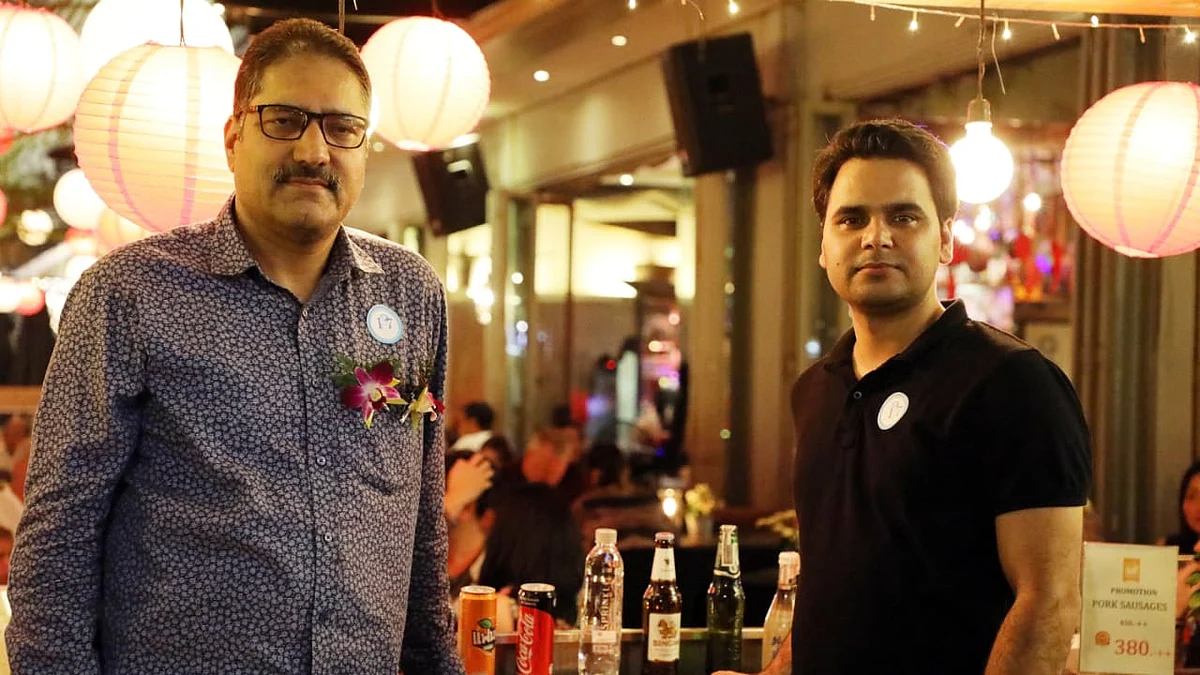Shujaat Bukhari will be remembered as an institution builder
The slain editor of ‘Rising Kashmir’ had built a formidable media enterprise despite being on the black list of the central government’s Directorate of Audio Visual Publicity

Before I got an opportunity to meet Shujaat Bukhari in person, I already knew him a little through his bylines in The Hindu. When I had a chance meeting with him, courtesy NDTV’s J&K bureau chief Zafar Iqbal, in November 2012, Rising Kashmir was in its infancy. I was writing on the issues of border residents of Jammu back then. He deeply appreciated my story ideas and soon I became a regular contributor to his daily.
Working with him was an altogether different experience. Unlike many high-headed editors, he would not only personally e-mail me the internet links of the published articles early in the morning but also tag me on Facebook while sharing the same with one or two sentences praising the work.
Occasionally, he would give story ideas over phone but always provided relevant contacts when requested so. Even when I discontinued writing for his paper, he stayed in touch and kept recommending my name for conferences, both inside and outside the country, and fellowships. But I was not an exception. He unfailingly was equally generous to other young journalists, who had the privilege to work with him or who sought his assistance.
The journey of Rising Kashmirfrom eight-pages to a 16-page newspaper and then establishment of sister-publications like Urdu daily Buland Kashmir, Kashmiri newspaper Sangramal and Urdu weekly Parcham took a heavy toll on his health. He suffered a major heart attack two years ago. Many had given up hope on him then. But he bounced back like a warrior with a renewed sense of commitment to serve journalism and society at large.
His papers remain blacklisted by the Directorate of Advertisement and Visual Publicity, a fact that he talked about proudly when Rising Kashmir turned 10.
Shujaat was more than an editor. Journalism was a way of life for him. Amid surging waters, he reached out to thousands of people in Srinagar and beyond with humanitarian aid during 2014 floods. Even later, his Rising Kashmir Foundation kept helping the poor rebuild and renovate their houses damaged by the deadly deluge.
About three years ago, he was elected as president of state’s prominent literary organisation, Adbee Markaz Kamraz. Well versed in English, Urdu and Kashmiri, he was a gifted orator. And his newspaper’s office had over the years become a meeting point for cultural activists.
In his writings and speeches, he always stressed that “Kashmir is a political issue and needs a political solution.” In a recent article, he emphasised that “anti-India sentiment in Kashmir is turning to hate-India sentiment”
“For last 24 hrs I am being trolled as I posted pic of #Srinagar youth being mowed down by #CRPF. While they have every right to defend CRPF action as they think #Jammu and Kashmir is just a piece of land, they will have to realise why this fear of death is missing in #Kashmiri youth,” he tweeted on June 2.
During his active career, he remained a strong votary of Indo-Pakistan friendship and a staunch advocate of inter-regional dialogue and confidence building measures between two parts of the state.
Back home, he never hesitated to participate in demonstrations over issues ranging from freedom of press to conservation of Dal Lake and healthcare issues.
Many of his colleagues fondly recall how he looked after the family of Parvez Mohammed Sultan, editor of the News and Feature Alliance, who was shot dead by an unidentified gunman in January 2003. Earlier in March, when his colleague Sahil Maqbool passed away, he not only helped the bereaved family personally but also played a key role in getting financial assistance to the family from the state government.
Remembering Shujaat as someone who had his moorings in cultural ethos of Kashmir, his friend and colleague Peerzada Ashiq writes in The Hindu that “he was a moderate Muslim who believed that extreme interpretation of the Koran will consume society.”
Though he vigorously worked for the preservation of Kashmiri language and many believe his advocacy led to re-introduction of the Kashmiri language in schools in 2008, after a gap of over three decades, his paper was perhaps the only Kashmir based daily that published the news when my father’s book, an anthology of Dogri poems, Aas Puchcha Di (The Hope Is Questioning), was launched in Jammu region.
There are very few people in the conflict-riddled state—which is deeply divided on regional, religious and ethnic lines—who don’t believe in putting ideological labels on each other. Shujaat was one such sane voice—in the wild cacophony of biases and prejudices—which has been silenced, so brutally and so suddenly.
Someone who always spoke high of his reporters, Shujaat always took pride in telling others about journalists he had mentored and who went on to work for national and international media organisations.
I vividly remember how affectionately he introduced me to his wife at Jashn-e-Rekhta in December last year after I informed him that I had joined National Herald and shifted to Delhi. We last met in Bangkok a few months ago during a cross-LoC meet of journalists organised by London-based Reconciliation Resources.
“Why are you not getting married yet? Is she a Muslim?” he had teased then during one of the several chats, before declaring, “I’ll definitely attend your wedding ceremony.” The heart aches as I remember him and realise that he will not be there.
Follow us on: Facebook, Twitter, Google News, Instagram
Join our official telegram channel (@nationalherald) and stay updated with the latest headlines
- Shujaat Bukhari
- Rising Kashmir
- journalists
- CRPF
- Jammu & Kashmir
- Shujaat Bukhari shot dead
- Zafar Iqbal
- Jammu & Kashmir dispute
- Buland Kashmir
- Indo-Pakistan relations
